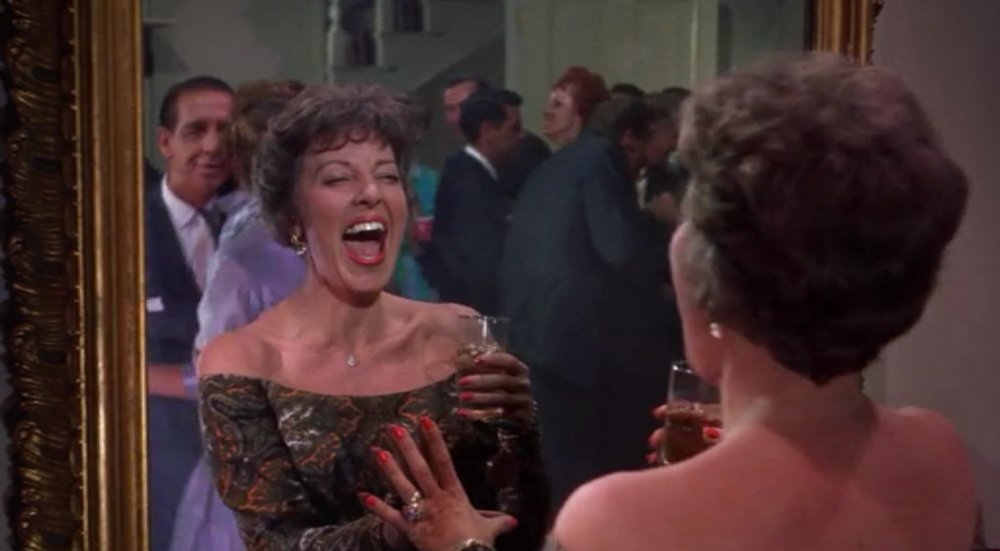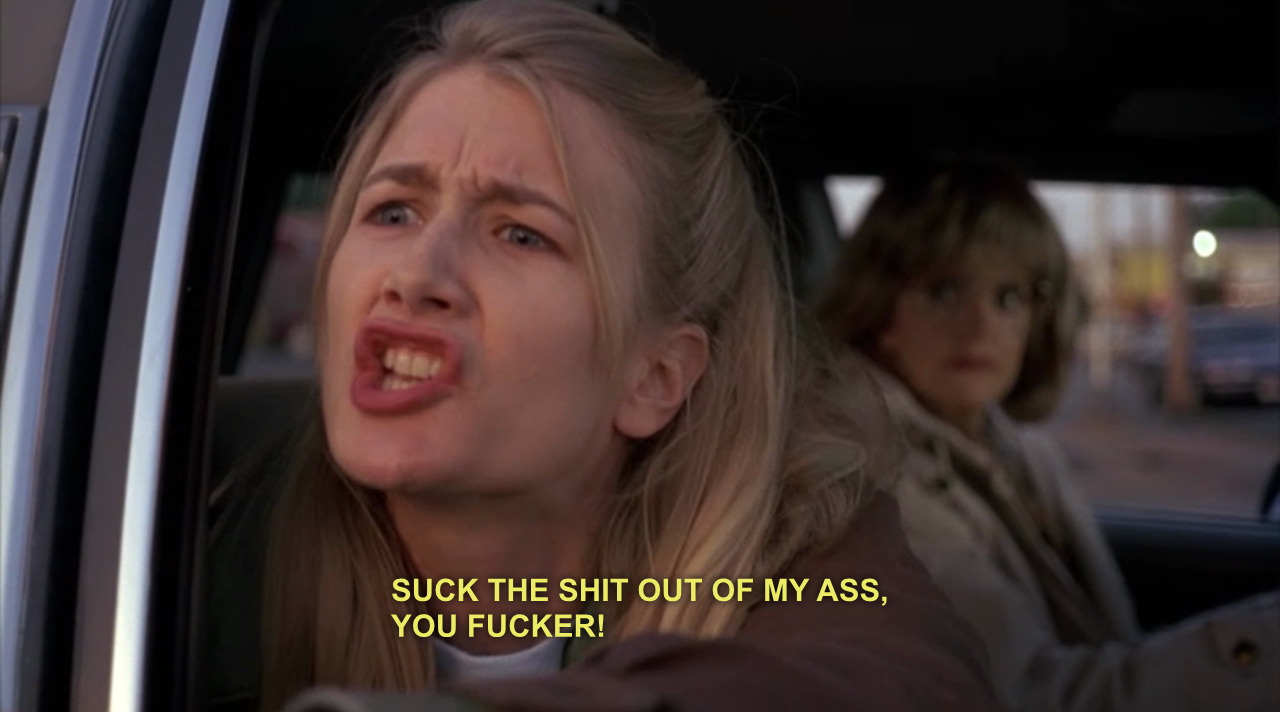This weekend, I watched two comedies, both great for different reasons: “Breakfast at Tiffany’s” and “Citizen Ruth.”
At this point, I’m not sure I could write anything about “Breakfast at Tiffany’s” that hasn’t been said, but I wanted to briefly share my thoughts because I actually liked the movie so much more than I expected. In fact, setting aside Mickey Rooney’s racist caricature of a Japanese man, of course, I really loved it.
The most obvious place to start is Audrey Hepburn, who is just a magnetic presence throughout the whole movie. Of course, part of that is her undeniable beauty, but it’s more than that. Whenever Holly Golightly was onscreen, I was just enraptured. There’s something offbeat, weird, and deeply intriguing about her. She’s like the flighty, unstable weirdo that Natalie Portman played in “Garden State,” but so much less grating and two-dimensional. While Sam from “Garden State” represented the purest form of the subtly sexist Manic Pixie Dream Girl trope, Holly has a rich backstory and layered psychology that explains her behavior.
When Buddy Ebsen came along as Doc Golightly, the movie briefly lost me; as interesting as Holly’s past life should be, I was more engaged by her present flirtation and evolving relationship with Paul Varjak (George Peppard, a funny, likable straight man). The subplot with Doc is kind of a weird digression stuck into the middle of the movie, considering he never even shows up again once he takes the bus home. That said, I recognize that it serves an important role in the movie. It’s just not what I was most interested in.
Pretty much everything else is golden. The party scene is just so great, and as odd as it sounds, I felt like I could relate a little bit to it, having seen some weird and random stuff at college parties. There are so many little moments in that scene that I love: the quick speed of Martin Balsam’s talking, the way Paul self-identifies as “Paul baby” when O.J. calls him “Fred baby,” the moment when Paul tosses a girl off Jose’s back and onto the back of another random attendee, and the comedic highpoint of the movie: the shot of one woman laughing hysterically at her reflection in a mirror, followed by the shot of the same woman sobbing at her reflection. Really, there are a lot of those small moments that I love throughout the movie. In some old movies, antiquated dialogue can create a bit of a distance between me and the movie, but here, it was funny and appealing. I love “the mean reds” and the way Holly calls all men “rats” or “super-rats.”
The way the romance between Holly and Paul proceeds seems like the standard romance formula, in some ways. Girl meets boy, girl gets boy, girl loses boy, girl gets boy back. (I put ‘girl’ as the subject because Holly is the one who has the real character arc here, but the other way around would work, too.) There’s a really cute date scene, lots of funny banter, numerous other love interests as obstacles (most notably Jose), a final confrontation, and a kiss in the rain. But there’s something so deep and unique about the conflict that drives Paul and Holly apart; it’s not as simple as Holly loving another man. The conflict is more internal—it’s a character flaw. It’s Holly’s love of materialism, her stubborn insistence that these temporary distractions will fill the hole in her heart.
This is best represented by the heartbreaking moment when she opens the cab door and shoos the nameless cat away. Pretty much any scene in any movie when a character gets rid of a cat will inevitably hit me hard since I love cats, but this one was especially potent because it was such a powerful metaphor for how Holly feels. Towards the end of the movie, I was so frustrated with her—I seriously wanted her to stop pretending she didn’t have any genuine love for Paul, or her cat, or her house, or her life in New York. And that final moment, as she jumps out of the cab, searches for the cat, finds it, and embraces Paul, is so cathartic.
Skipping forward 35 years, “Citizen Ruth” is most notable for being the debut film of Alexander Payne. I’ve always had mixed feelings about Payne; while I like “About Schmidt” and “The Descendants” well enough, I have to admit I found “Nebraska” pretty dull the first time I saw it. I was ready, for a while, to write Payne off as a filmmaker who simply didn’t fit my tastes, regardless of how beloved he may be. Then I watched “Election,” and I almost groaned, because I could no longer dismiss Alexander Payne. I absolutely loved “Election,” and “Citizen Ruth” represents another boost in my regard for Payne (I still haven’t seen “Sideways”).
Oddly enough, the first thing “Citizen Ruth” reminded me of was “Mockingjay,” the third book in the Hunger Games trilogy. In “Mockingjay,” Katniss defeats President Snow and the primary villains of the series with the help of ostensible good guys President Coin and her best friend, Gale. Eventually, though, you realize that the good guys have some dark secrets of their own. One of the fascinating twists of “Mockingjay” is that though President Coin might be trying to accomplish an admirable goal—defeating Snow and bringing justice to Panem—she’s ultimately just as manipulative, vindictive, and hateful as the presumed bad guys. Gale, too, though well-meaning, is implicated in some of Coin’s most heinous acts.
In this analogy, the pro-lifers that try to convince Ruth to keep her baby in “Citizen Ruth” are like President Snow and the corrupt citizens of the Capitol. They’re the most obvious choice for the antagonists; they’re religious zealots who seek to manipulate Ruth and use her to accomplish their own political agenda. Honestly, to me, abortion is the kind of issue that doesn’t need for both sides to be treated equally, just like a movie about gay people fighting for same-sex marriage to be legal doesn’t need an equally valid point of view showing that maybe gay marriage should be illegal. I would’ve been fine with an unequivocally pro-choice movie, just like I’d be fine with a pro-gay marriage or anti-racism movie.
And yet “Citizen Ruth” manages to humanize both sides. On the pro-choice side, the characters can be likable because they’re generally more accepting of Ruth and her lifestyle and her choices. On the pro-life side, the characters can be likable because Norm (Kurtwood Smith) and Gail (Mary Kay Place) are such kind people to Ruth, feeding her and clothing her and paying her bail and putting up with her shit. Us liberals tend to dismiss radical conservatives and pro-lifers, but Norm and Gail, despite being cartoonish, were genuinely caring people. It’s important to remember people’s humanity, even when their beliefs are damaging.
Yet the other striking thing about “Citizen Ruth” is that really, none of the characters are likable. They’re all mostly caricatures, the pro-choice side being stereotypical hippie liberals and the pro-life side being stereotypical Jesus freaks. To a degree, both sides are kind or respectful to Ruth, but a lot of that is pure manipulation. Ruth is treated like Katniss is in “Mockingjay”; she’s used as a symbol for a political agenda, and even if that agenda is arguably the correct one, it’s taking advantage of Ruth and using her, not treating her like a human with desires that should be respected.
It’s worth noting that Ruth is also a terrible person. She’s an addict, so not all of her actions are entirely her fault, but it still gets painful and exasperating to see her repeatedly huffing paint and glue and patio sealant when she knows it’s terrible for her. And she definitely acts entirely selfishly and ignorantly, regardless of any physiological drive. She acts entirely in her own self-interest, with no specifically pro-life or pro-choice stance of her own. She drops a toilet tank cover on a guard’s head and knocks him out. She ruthlessly uses profanity, including such hilarious gems as “suck the shit out of my ass, you fucker!” and a casual “oh yeah, well you’re a cunt.” When her pro-life mother begs her not to abort her baby and asks, “What if I’d aborted you?,” Ruth screams back over a megaphone, “Well, at least I wouldn’t have had to suck your boyfriend’s cock!” Laura Dern sinks her teeth into this role with a brilliant, hilarious gusto, and you have to admire her for how shamelessly abhorrent she makes Ruth.
[Spoilers for the ending in this paragraph.] And yet, despite Ruth’s despicability, you know that she deserves a happy ending just as much as any of these manipulative people trying to control her body. So when the movie ends with Ruth escaping with $15,000, you feel happy for her. Sure, there’s a good chance she’ll squander it all in a couple days on booze and drugs. Maybe she’ll end up back in jail by the end of the day. Maybe she’ll never turn her life around or see any of her kids again. Maybe she’ll die early after living an unhappy life with no support from family or friends, only drugs and the streets.
But whatever happens to Ruth after the credits roll, at least it’s her choice. And that, more than any explicit pro-abortion moral, is the most progressive message “Citizen Ruth” has.








Leave a Reply
Be the First to Comment!